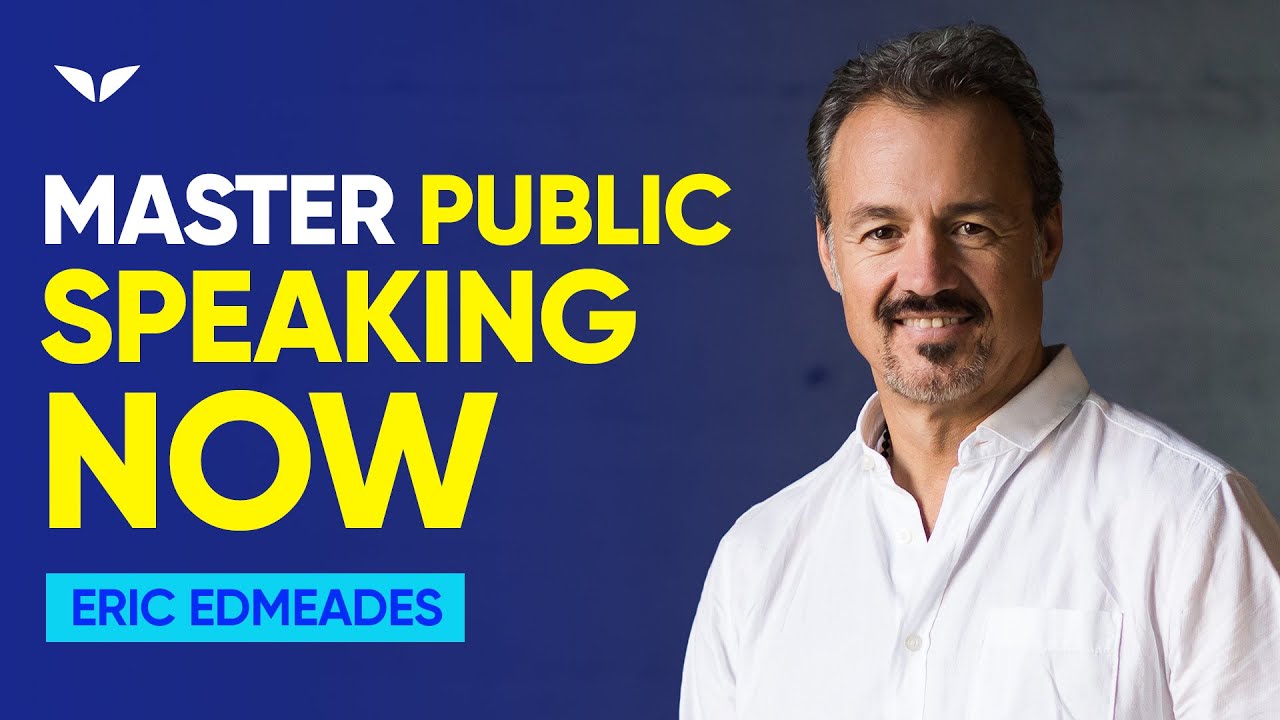In today’s dynamic world of communication, excelling in a professional speaking program involves more than just having a melodious voice and a clear message. It’s about mastering the art of engagement, influence, and delivering value-packed content that resonates with diverse audiences. This article is a deep dive into the mastery secrets of successful professional speakers, emphasizing the importance of unique strategies and continuous growth.

Essential Components of a Successful Professional Speaking Program
Establishing a reputable and effective professional speaking program requires several foundational elements. Let’s explore these components, which are vital for any aspiring speaker to master:
Crafting a Unique Speaking Style
Renowned speakers like Brené Brown and Simon Sinek have carved out niches with their distinct styles. Brown’s vulnerability and authenticity have garnered widespread acclaim, while Sinek’s focus on leadership theory and his “Start With Why” concept has transformed his public speaking engagements. Developing a personal speaking style that aligns with your core message and values is crucial for differentiation in the crowded speaking market.
Building Engagement with Storytelling
People remember stories more effectively than data. Malcolm Gladwell, the author of “The Tipping Point,” excels in intertwining compelling narratives with economic and sociological concepts, which makes his talks memorable. Similarly, incorporating storytelling into your professional speaking program can enhance engagement and retention among your audience.
Integration of Technology in Professional Speaking Programs
Technological advancements have revolutionized the way speakers connect with audiences. Leveraging these tools can enhance both delivery and interactivity.
Utilizing Virtual Platforms
The COVID-19 pandemic accelerated the adoption of virtual speaking engagements. Platforms like Zoom and Microsoft Teams have become standard for delivering speeches remotely. Gary Vaynerchuk, a serial entrepreneur and motivational speaker, effectively uses these platforms along with live streaming to engage a global audience. Mastering virtual tools and techniques can significantly broaden your reach.
Analyzing Audience Feedback through AI
Artificial Intelligence (AI) offers profound insights into audience engagement. Tools such as IBM Watson and sentiment analysis software can scan social media reactions and provide valuable feedback. This data-driven approach allows speakers like Tony Robbins to continuously refine their messages, ensuring they resonate with audience sentiments and trends.

The Significance of Continuous Learning and Adaptation
In the realm of professional speaking, stagnation is the enemy. Continuous learning and the ability to adapt to changing environments and audience expectations are paramount.
Regular Skill Upgradation
Continuous professional development is vital. Organizations such as the National Speakers Association (NSA) offer extensive resources and certification programs to help speakers stay current. Engaging in workshops, enrolling in advanced public speaking courses on Udemy, Coursera, or EdX, or participating in industry conferences can provide fresh insights and refine skills.
Staying Updated with Industry Trends
Understanding industry trends is crucial for relevance. For instance, sustainability has become a significant talking point, and speakers like Al Gore have pivoted to focus on climate change. Similarly, staying updated with the latest trends allows speakers to tailor their content to meet emerging audience interests and societal needs.

| Category | Details |
| Types of Paid Speakers | Keynote Speakers, Motivational Speakers, Corporate Trainers, Subject Matter Experts, Industry Speakers |
| Purpose | Organizations hire paid speakers for their authoritative knowledge on specific topics. |
| Expertise Requirement | Experience in the field of discussion, recognized authority in the topic. |
| Communication Skills | Speak slowly and clearly, enunciate words, use appropriate professional vocabulary; avoid slang and informal language. |
| Education & Training Resources | Udemy, EdX, Coursera, and Class Central offer public speaking courses, including professional certificates; final exams typically required, no minimum education needed. |
| Features of Public Speaking Courses | Online format, self-paced or instructor-led, contain practice exercises, peer feedback, and final evaluations. |
| Price Range | $0 – $500 per course, varying based on platform and course depth. |
| Benefits of Professional Speaking Courses | Improved communication skills, increased confidence, credential enhancement, networking opportunities. |
| Credential | Professional Certificate (upon course completion and passing final exam where applicable). |
| Professional Development | Enhances overall communication skills, professional articulation, and perceived competence. |
Leveraging Social Media for Building a Personal Brand
Your professional speaking program can benefit immensely from a strong social media presence. Platforms such as LinkedIn, Twitter, and YouTube enable speakers to build and sustain their personal brand.
Content Consistency and Engagement
Consistency in content delivery and active engagement with followers can amplify your reach. Public figures like Michelle Obama use Instagram and Twitter to maintain a continuous dialogue with their audience, reinforcing their message and values. Regular posting of valuable content, such as snippets from speeches, behind-the-scenes glimpses, or thought-provoking articles, helps in maintaining visibility and relevance.
Creating Interactive Content
Innovative use of interactive content like live Q&A sessions, polls, and interactive webinars can foster deeper connections with your audience. Platforms like Clubhouse offer unique opportunities for real-time audio interaction, allowing speakers like Elon Musk to captivate and engage with audiences in a unique way. This type of engagement can dramatically enhance a speaker’s connection with their audience and boost their influence.

Final Thoughts on Mastering a Professional Speaking Program
Mastering a professional speaking program requires dedication, continuous learning, and a strategic approach that incorporates technology, narrative skill, and adaptive learning. The journey involves understanding and engaging your audience effectively, staying abreast of trends, and utilizing sophisticated tools to deliver compelling and impactful messages consistently.
Embrace these secrets, and you’ll not only elevate your speaking prowess but also make a profound impact on your audience. By following these insights, aspiring and established speakers can truly transform their professional speaking programs and establish themselves as authorities in their chosen fields.
Looking to improve your speaking skills and make a lasting impression at your next event? Check out our specialized programs on Keynote speaker development and Personal branding Speakers. For more tips on public speaking, visit Public speaking success.

Resonate with passion, speak with purpose, and let your voice leave a legacy.
Mastering the Professional Speaking Program
Fascinating Tidbits About Professional Speaking
Ever wonder what sets a professional speaking program apart? Well, it’s not just about perfecting the art of articulation. One quirky aspect is that speakers often draw inspiration from unexpected sources. For instance, public speakers have been known to study the timeline of something seemingly unrelated, like the Zimbabwe national cricket team Vs Ireland cricket team timeline. Analyzing such events helps speakers grasp how narratives unfold and captivate audiences. Who knew sports stats could help shape a great speaker’s storytelling prowess?
Unexpected Influences
Interestingly, professional speakers sometimes borrow techniques from unrelated fields. Did you know that analyzing photos of various subjects, including fotos de hombres desnudos, can help professional speakers understand body language and emotional expression more effectively? It might seem unconventional, but any avenue that offers insight into human behavior can be invaluable.
Physical Presence and Confidence
Confidence and physical presence are foundational elements of an effective professional speaking program. It might sound counterintuitive, but some speakers even study the habits of diverse groups, like the purchasing patterns of cigarette Marlboro light consumers. Why? Because understanding different demographics can provide speakers with context and resonance when addressing varied audiences.
Adaptability in Evolution
In times of major upheavals, such as a New york state Of emergency, professional speakers demonstrate adaptability by learning to convey calm and insightful information amidst chaos. This practice sharpens their ability to remain composed and reassuring in any situation. Moreover, speakers sometimes turn to unconventional sources, like insights from an anime shop near me, to stay relatable and engaging to younger audiences by incorporating contemporary references into their talks.
Engaging trivia and blending these interesting facts not only make for a captivating read but also reveal the diverse and unexpected avenues that contribute to the making of a masterful professional speaking program. Each element, no matter how quirky or unrelated it may seem, plays a role in molding a compelling speaker.

How can I practice professional speaking?
Practicing professional speaking involves speaking slowly and clearly. Make sure to enunciate your words and choose vocabulary that fits a professional context. Avoiding slang and informal language helps you sound more professional, articulate, and competent.
What is the best speaking course?
Udemy, EdX, Coursera, and Class Central offer highly-rated public speaking courses with professional certificates. Look for courses that suit your learning style and goals, and be prepared to either pass a final exam or complete coursework to earn your certificate.
Can you get paid for speaking?
Yes, you can get paid for speaking if you’re seen as an authority on your topic. Organizations often hire speakers who have expertise and experience in the field they discuss, so having knowledge and a strong background in your subject is crucial.
How do I start speaking professionally?
Starting to speak professionally begins with choosing a topic you’re knowledgeable about. Build a reputation by speaking at smaller events or online initially, and gradually work your way up. Networking and marketing your speaking services can also help you gain more opportunities.
What are the 7 Ps of public speaking?
The 7 Ps of public speaking are Proper Planning and Preparation Prevent Poor Performance. In other words, being well-prepared and organized are key to delivering a successful speech.
How do you become a professional talker?
Becoming a professional talker involves gaining expertise in your subject, developing effective speaking skills, and marketing yourself as a speaker. It’s a blend of knowledge, communication abilities, and self-promotion.
What is the most effective speaking style?
An effective speaking style varies depending on the audience, but generally, it’s clear, concise, and engaging. Tailoring your speech to your audience’s interests and level of understanding is also very effective.
Which website is best for speaking practice?
Websites like Coursera, Udemy, and EdX are great for speaking practice. They offer courses focused on various aspects of public speaking and often provide interactive elements to practice your skills.
How can I train my speaking skills?
Training your speaking skills can be done through regular practice, recording yourself and listening back, and seeking feedback from others. Joining groups like Toastmasters can also provide constructive critique and structured practice.
How can I practice professional English speaking?
Practicing professional English speaking involves engaging in conversations on business or industry topics, reading professional materials out loud, and using language learning apps or websites that focus on professional contexts.
How can I practice professional communication skills?
Practicing professional communication skills includes role-playing different scenarios, actively listening, and improving your writing skills. Enrolling in communication courses and seeking feedback from mentors can also be very beneficial.
How can I be a good professional speaker?
To be a good professional speaker, focus on continuously improving your knowledge in your field, honing your speaking skills, and engaging with your audience. Seeking feedback and learning from each speaking experience will also help you grow.
How can I practice my speaking voice?
Practicing your speaking voice means working on breath control, vocal projection, and clarity. Recording yourself, doing vocal exercises, and getting feedback from others are methods that can help improve your voice for speaking.

















